MercoPress. South Atlantic News Agency
Tag: Argentine peso
-
Monday, September 3rd 2018 - 19:17 UTC
Macri admits the seriousness of the situation and Dujovne is off to meet with IMF

President Mauricio Macri unveiled plans on Monday to raise export taxes on grains and slash the number of government ministries in a bid to balance its budget next year, as Argentina seeks a deal with the IMF to accelerate a US$ 50 billion standby loan program.
-
Saturday, September 1st 2018 - 09:27 UTC
S&P places Argentina credit ratings under review
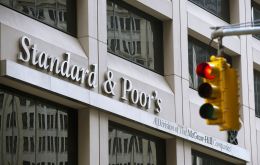
S&P said on Friday it may lower Argentina's long-term foreign currency rating from its current B+ grade, which is four notches below investment grade -- and on par with Turkey, Greece and Fiji. The ratings company cited the risk of worsening creditworthiness and exchange rate volatility as potential threats to the economic adjustment measures undertaken by Mauricio Macri’s administration.
-
Thursday, August 30th 2018 - 09:11 UTC
Macri addresses the nation; IMF pledges more support but Peso falls 7%, a record 34 to the US dollar
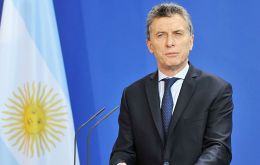
Argentina's Peso suffered its biggest one-day slide in almost three years on Wednesday after the central bank sold reserves for a second straight day and the president asked the International Monetary Fund for early release of standby funds.
-
Wednesday, August 29th 2018 - 08:48 UTC
US dollar hits a new record in Argentina despite auctioning US$ 200 million
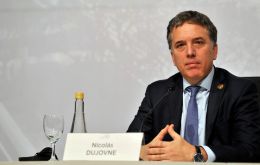
Argentina’s central bank auctioned a total of US$ 200 million of its reserves in two separate currency auctions on Tuesday after the peso hit new lows, the monetary authority said in a statement.
-
Sunday, August 26th 2018 - 04:35 UTC
Argentina's Peso falls 1.42% on Friday, despite a weaker dollar following Fed's Powell speech
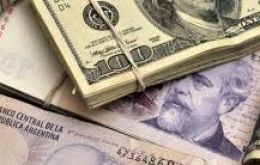
Argentina’s peso currency fell 1.42% to a record low close of 30.92 per dollar on Friday, weighed down by an economy slipping into recession, high inflation and uncertainty driven by corruption investigations.
-
Friday, August 24th 2018 - 08:50 UTC
Argentina’s economy contracts in June for the third month running
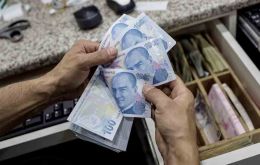
Argentina’s economy contracted 6.7% in June compared with the same month last year, and 1.3% compared with May, government statistics agency Indec said on Thursday. June was the third consecutive month of decline following 5.2% in May and 0.6% in April.
-
Saturday, August 11th 2018 - 09:13 UTC
Black Friday for Argentina: dollar climbs 3.86% and sovereign credit risk reaches 700 points
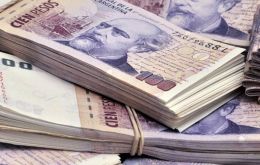
Argentina’s peso closed down 3.86% on Friday and the stock market ended 1.44%, pressured by emerging markets turmoil, particularly in Turkey, and a corruption scandal that has touched some of the country’s top business leaders, traders said.
-
Wednesday, July 4th 2018 - 08:13 UTC
Argentina reveals financial needs; stock market and the Peso rebound
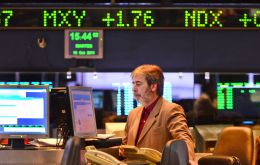
Argentina will need to raise a net US$ 8 billion in the domestic debt market in 2019 to meet financing needs that include a US$ 7.4 billion primary deficit and US$ 25 billion in debt principal and interest payments, according to a Treasury Ministry document.
-
Tuesday, July 3rd 2018 - 07:33 UTC
Argentina hikes bank reserves; Peso gains 1.9% vs the dollar and settles at 28.3

Argentina's central bank said on Monday that it hiked bank reserve requirements by 3 percentage points, following a hike of three percentage points on June 18 as monetary policymakers seek to calm inflation and end a run on the peso currency. The Peso gained 1.9% on Monday against the dollar.
-
Saturday, June 30th 2018 - 15:49 UTC
Argentine Peso and equities end the week back on skid row

After a week of relative stability, the Argentine peso slid more than 2.5% percent on Friday, as an economic crisis marked by high inflation, wobbly growth and an outflow of capital began to bite again.
